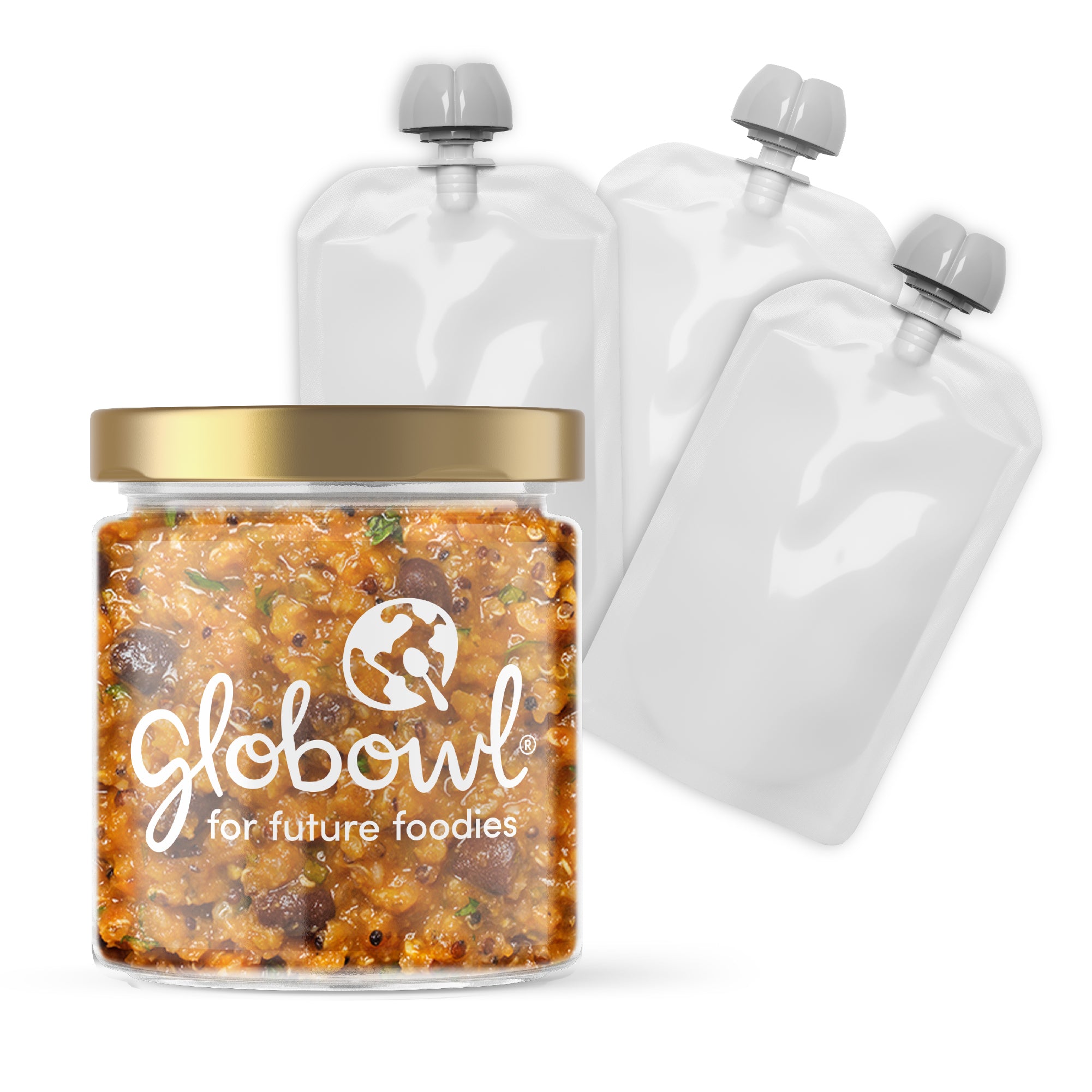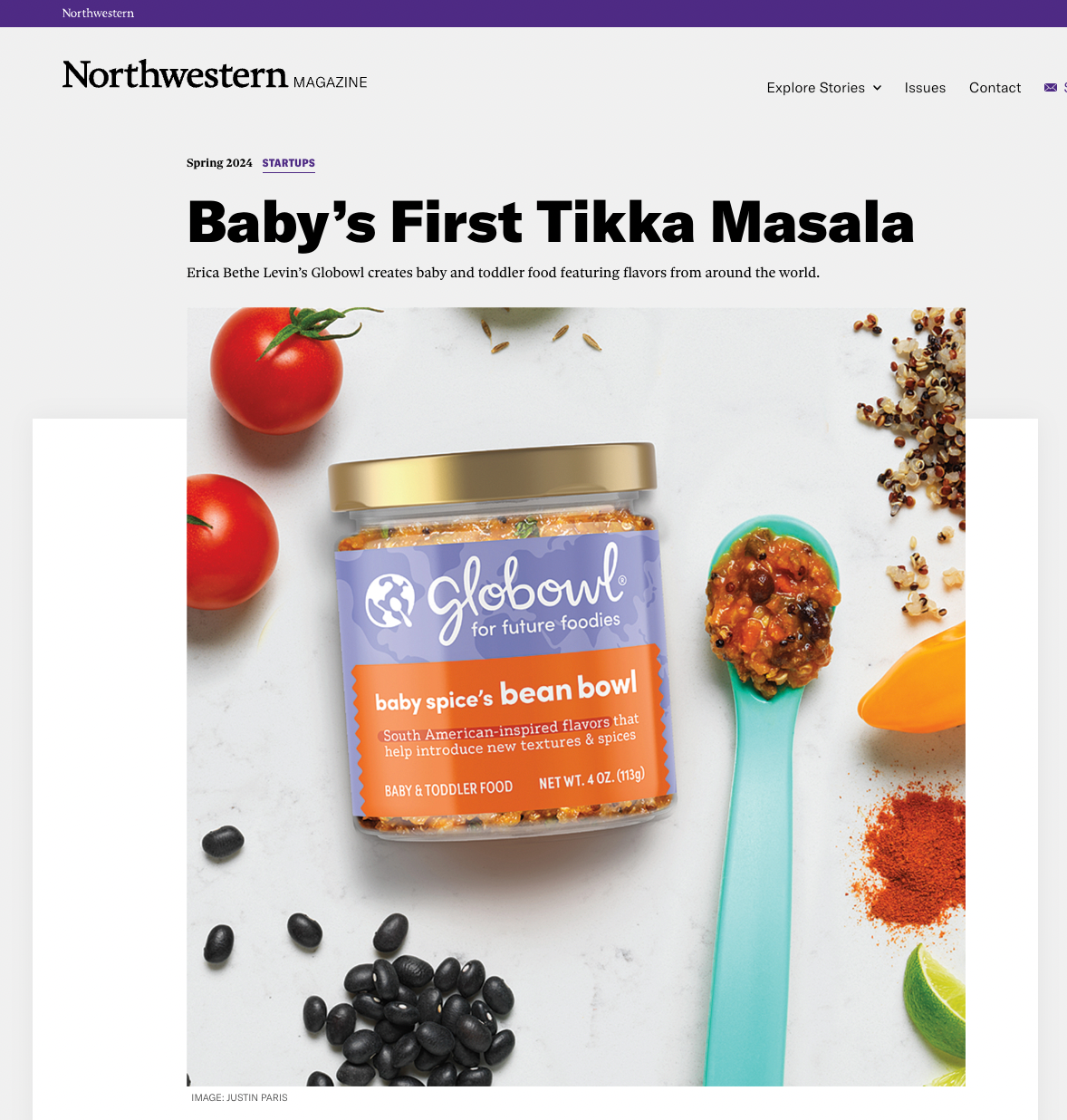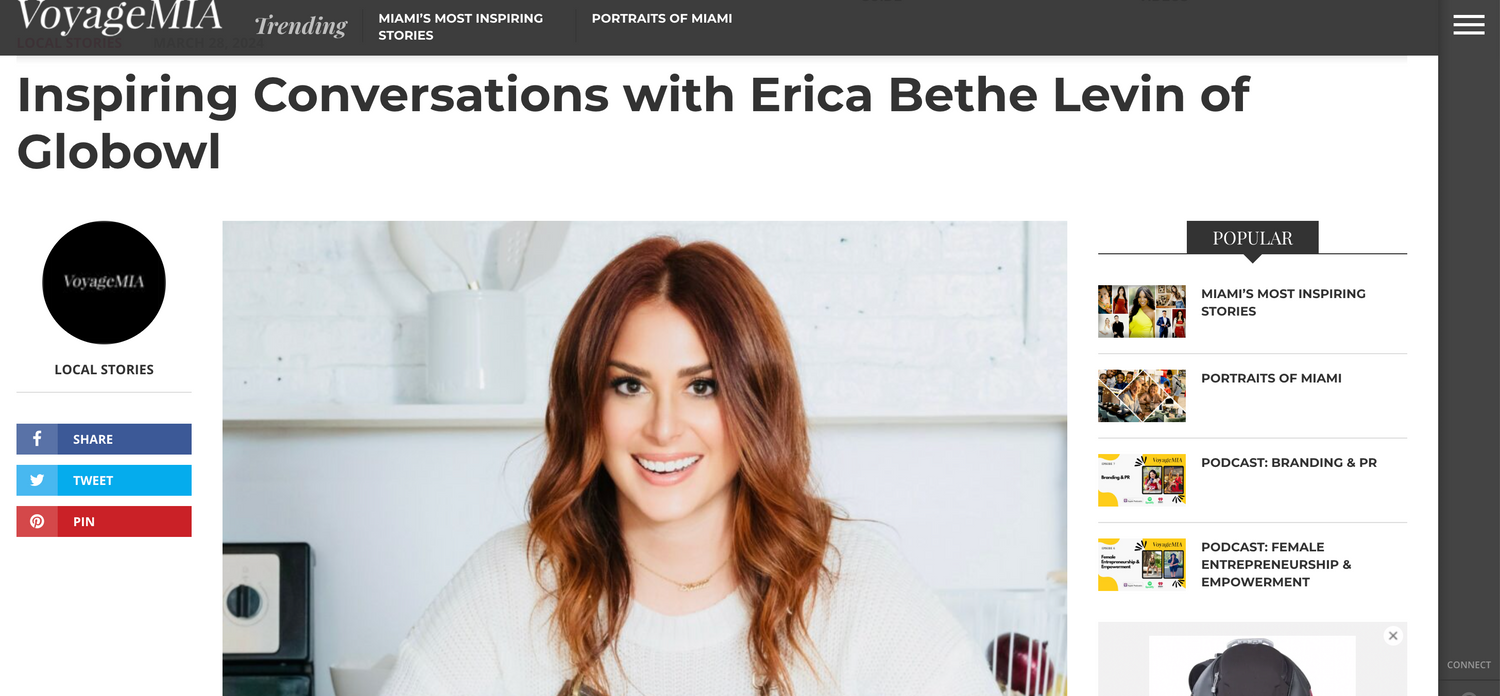Contributor: Joan O'Connor
Our last article discussed the plethora of reasons why we chose glass packaging for Globowl’s food instead of plastic. We know it’s impossible to avoid using plastic baby food containers, sippy cups, and baby bottles altogether, but we want you to have the best tips on how to limit the exposure and release of microplastics and nanoplastics into your baby’s food and beverages.
- Do not put any plastic package (including pouches) in extreme heat (boiling, microwave heating,dishwasher). Heat causes plastic to shed more chemicals and particles.
- Vigorously shaking a bottle can cause microplastics to flake off into liquids (a 2023 study where researchers shook room temperature water for 60 seconds resulted in the flaking of hundreds of thousands microplastics into the water). Experts suggest preparing formula in a glass container and once shaken, transferring to the plastic baby bottle.
- Don’t confuse microwave safe labels with being safe to heat in the microwave. “Microwave safe” just means the plastic is heat resistant and won’t warp in the microwave.
- When storing breast milk in the refrigerator or freezer, always use glass containers. Once it’s ready for mealtime, transfer the milk into a plastic baby bottle. However, discard any leftover milk that has been in the plastic bottle. Do not reuse.
- Take care of your plastic containers. When cleaning don’t use abrasive sponges or chemicals. When the plastic shows visible wear like cracks, chips, or punctures, it is time to recycle or repurpose because they can harbor bacteria or other microorganisms that can migrate into food.
- If giving your baby water, use filtered tap water. Do not transfer bottled water into a sippy cup. A Frontiers in Chemistry study found that water sipped from plastic bottles contained about double the amount of microplastics than straight-from-the-tap water.
- Swap plastic bottles or sippy cups with glass or stainless steel whenever possible.
Sources:
Cleveland Clinic - Are Plastic Baby Bottles Safe?
WebMd- What to Know About the Toxicity of Polypropylene
Healthline- Is Polypropylene a Safe Plastic to Use in Your Home





